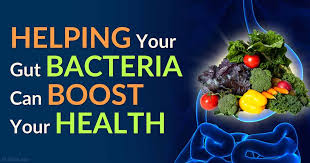Your Digestion: Bowel Motions Tell a Story

This is an often embarrassing topic for some people to discuss but “Gut Health” and the “quality” of waste material excreted from the body, provide us with valuable information as to how our digestive system is working, and our overall health.
If we look at the digestive system in simple terms then it is a balance between “moisture” and “heat”. Moisture means body fluids which have been ingested. It is a balance between being wet enough / dry enough. Just like making scones or pouring concrete. If the mix is too wet, the result will be a loose form. If there is not enough fluid in the mix, then the form will be too dry and so will be difficult to move.
“Heat” (digestive fire) is the capacity of the digestive organs to break down ingested foods into usable substances that the body can absorb. If there is not enough “heat” in the digestive organs then they will be unable to break down the ingested substances properly. Just like cooking something on the stove. If the heat is too strong it will tend to “burn or overcook” what is being cooked. This means the mix will dry out quickly, so loses the balance of being the right consistency. If the heat is not strong enough, then the process of “breaking down” the mix (digesting), will be slower and incomplete (indigestion / bloating).
The whole process of digesting starts with our thoughts about eating and the smells of the food we intend eating. This produces saliva (the digestive juices of the mouth), which along with chewing, prepare the food into a “bolus” before if enters the Stomach.
The Stomach produces acid which starts the breakdown of ingested foods. The Small Intestine uses digestive enzymes (from Spleen / Pancreas and Gall Bladder) to continue the digestive process. This means they are part of the same “tube -like structure” which food passes through. The Stomach receives, the Small Intestine sorts out the “pure from the impure” and the Large Intestine excretes waste. This is an oversimplification of the process as the individual organs carry out many functions, as part of the digestive process, but it is important to remember that the digestive organs are reliant on each other, in order to function properly.
The Peristaltic Rhythm (gradual contraction and expansion of the muscles on the walls of the intestines), is an essential part of the function of digestion as it provides movement of the ingested material through the different phases for processing. Poor peristalsis can lead to sluggishness and poor bowel habits (constipation). “Too much” peristalsis can lead to a quick exit of the ingested food (diarrhoea) and often results in poor absorption of nutrients.
An essential part of this whole process is “gut health”. We often hear of the term pro-biotics. This means “good bacteria” which help the digestive process to be as complete as possible. Poorly digested foods makes you feel unwell. Whereas if you eat a meal and you feel comfortable and energised then naturally you are going to feel better.
So what can you do to improve your digestive function ?
First thing is to “be mindful” of how you are eating. Show some appreciation for where the food came from. The farmer who grew the food. The sun, rain and soil which gave the foundation for the food to exist. The person who prepared the meal for you. This sets up a healthy digestive function.
Next is chewing your food well. This is essential if you want to have good digestion. If you don’t spend time chewing your food well then you are giving your Stomach extra work to do.
Don’t rush your meal. Eat in a relaxed atmosphere whenever possible. this sets up a healthy digestive process.
By eating mindfully you will not overeat. You will stop before you feel too full.
A relaxed walk after eating will stimulate good digestion as the muscles in the front of the shins relate to the digestive organs, so walking will activate these muscles and improve the digestion.
Other things that can improve the digestive process are:
Not drinking during meals, as this weakens the effectiveness of the digestive juices.
Not drinking “cold” liquids, as this will extinguish your digestive fire.
Eating at regular times as the digestive organs like rhythm.
Any specific questions you may have then send me a message.
Warren

